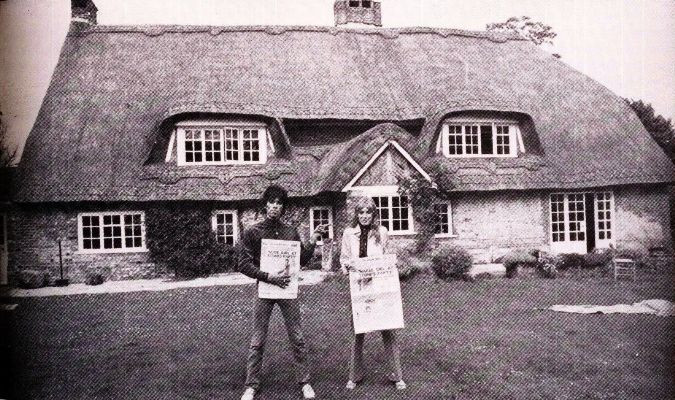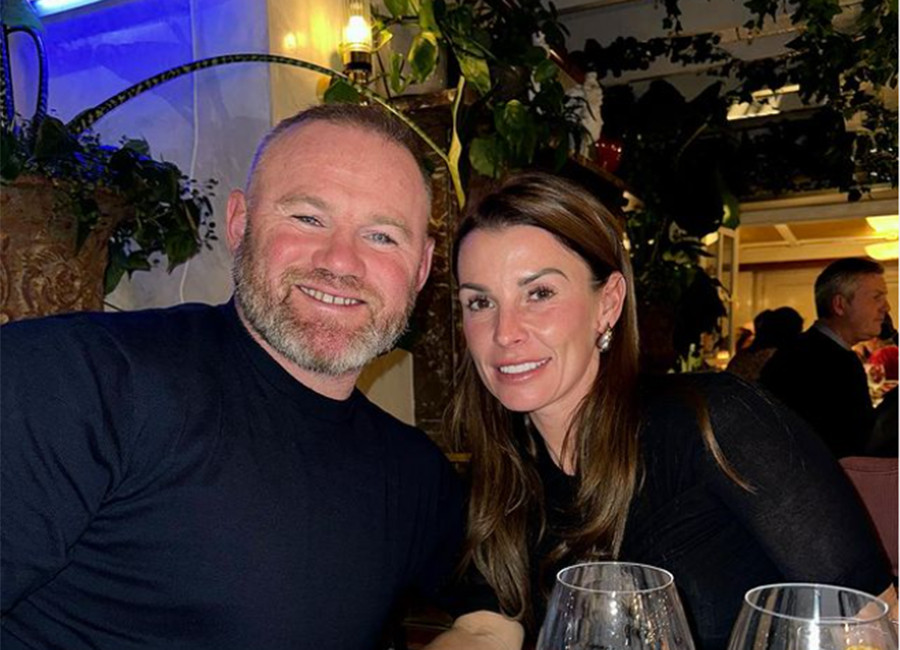The public outcry that followed the prison sentences of Mick Jagger and Keith Richards in 1967 after a drugs raid on the latter’s country pile is proof that the culture wars are not this era’s invention. The cause célèbre campaign and subsequent overturning of their convictions marked a clash between establishment values, tabloid-engineered moral panic and the rising rock’n’roll generation.
Justin Audibert’s production of Charlotte Jones’s play foregrounds the band’s story with a fictionalised father-son clash involving the barrister who fought their case. Michael Havers QC (Anthony Calf) is from an illustrious family of lawyers who expects his son to follow suit. But Nigel Havers (Louis Landau) – then a schoolboy, now a veteran performer of screen and stage – has designs on tearing away from tradition to become an actor.
It is an original take with a strong local angle – the case took place at Chichester Crown Court and Richards still owns Redlands, the Sussex home that was raided. But it makes for a peculiar melange, stranger for pushing Jagger (Jasper Talbot) and Richards (Brenock O’Connor) into the backdrop in favour of the family story, although Jagger’s then-girlfriend and singer, Marianne Faithfull (Emer McDaid), gets more of a look-in.
Havers Jr narrates his story, which includes a friendship forged with Faithfull, and the Havers family occasionally – unnecessarily – bursts the fourth wall to no particular end other than making good use of the auditorium.
Jones’s script is at its strongest when it brings the court case alive in cross-examinations and star testimonies, but these are brief glimpses that touch on tabloid chicanery, class clashes and misogyny surrounding Faithfull in her representations in court (in absentia, because she was not called to testify) and in the press.
The Havers’ family drama is endearing but Jones’s characters are picaresque. Havers Sr is a lovable stuffed shirt, his wife tenderly portrayed by Olivia Poulet and Landau is charming in his wide-eyed worship of Faithfull. McDaid in turn gives a strong performance of a woman both scapegoated and sidelined, and she has a wonderful voice, too.
It is never easy to breathe life into celebrities as thoroughly known as Jagger and Richards; here they are not given the space or depth to be anything other than broad brush types. But both actors carry a likeness at least, especially Talbot in Jagger’s hip-wiggling foot stomps when he sings.
Joanna Scotcher’s set design captures the moment, and the era, with its ruched red curtains and light bulbs. Ryan Dawson Laight’s flower-power trousers and flamboyant neck-ties are delightful, even if they verge on Austin Powers’ exaggeration.
If you never saw The Rolling Stones, Jasper Talbot as Mick Jagger and Brenock O’Connor as Keith Richards brilliantly capture their iconic sound and moves in Redlands at Chichester’s Festival Theatre. This fictional account by Charlotte Jones is of their arrest after a drugs raid at Redlands, Richards’ West Wittering house, in 1967.
Before a party with Richards’ rock chums - including provocative, beautiful Marianne Faithfull (Emer McDaid, a stunning performance) - we meet teenage Nigel Havers (a captivating Louis Landau) as narrator. Anthony Calf is mesmerising as barrister Michael Havers QC. Obsessed with winning cases, he expects both his sons to follow in his footsteps - oblivious to Nigel wanting to become an actor.
Jagger and Richards are on trial in Chichester after being arrested at the party just after an uninvited drug dealer arrives. They suspect they were set up by the News of the World, which Jagger is suing for libel. Havers senior represents them while wife Carol (Olivia Poulet) and father Cecil (a wonderful comic performance by Clive Francis) badger him to let Nigel become an actor. The audience sing along with the dancing cast to I Can’t Get No Satisfaction in a breathtaking music-filled finale. Redlands runs until October 18.
It wasn’t exactly the trial of the century, but for the sleepy and well-manicured city of Chichester in 1967 it was quite the bubble of scandalous excitement. Having exploded onto the rock ‘n’ roll scene four years earlier, the Rolling Stones were riding high (both literally and figuratively) and were fast becoming the icons that we know today. In February of 1967 Mick Jagger and Keith Richards were hanging out at Richards’ country house pad, Redlands in West Wittering on the outskirts of Chichester. The local constabulary had been tipped off that drugs were being used at Redlands and they raided the happy gathering, that also included Jagger’s lover at the time, Marianne Faithful. Jagger had been in a tussle with the News of the World following an unrelated story that had resulted in him pursuing the paper for libel. It would later be argued that it was the News of the World that had set Jagger and Richards up, as revenge.
It’s an intriguing story that touches on press control, as well as establishment conspiracy, police corruption and celebrity intrusion. Instead of deep-diving into any of these areas however, writer Charlotte Jones chooses to sideline the Stones and explore the coming-of-age story of one Nigel Havers – yes, I do mean the Bidding Room presenter and panto supremo. It’s a sharp left turn, and whilst not entirely disinteresting, leaves one feeling wholly frustrated as Jones loses focus and begins to wander in her storytelling rather too broadly. Havers comes from a long line of distinguished lawyers. His grandfather Sir Cecil Havers (a bravura comic performance from the delightfully distinguished Clive Francis) was the judge in the Ruth Ellis case, whilst his aunt, Baroness Elizabeth Butler-Sloss, would become the first female Lord Justice. It was his father, later to become Lord Michael Havers, that was asked to represent the Stones in the Redlands case.
Jones spends a huge amount of the nearly three-hour running time examining the father and son relationship between the QC and the budding actor. With a distant father, the younger Havers struggles to find acceptance for his chosen career path as an actor – one that would later lead him to become the nation’s favourite charmer. Anthony Calf gives brilliant “stuffed shirt” emotional distance to Michael and at one point has to be told by his wife to remember that his son is “not a hostile witness”. Louis Landau is a nicely charismatic Nigel, a disarming charm always at the fore. It’s a handsomely crafted professional debut for Landau.
More blurred lines appear with some sub-plotting for Emer McDaid’s sultry Marianne Faithfull, touching on, but never fully exploring the role of women in the ’60s music industry. Brenock O’Connor’s Richards and Jasper Talbot’s Jagger both work hard to bring life to otherwise thinly written characterisations. Talbot in particular uncannily looks the part of the tearaway front man, but there is a hesitancy to them both and they lack the swagger and the abandonment of the real thing. Perhaps director Justin Audibert didn’t think Chichester was quite ready to seriously turn up the rock dial.
There are certainly some funny lines in Jones’ writing, which is a muddied comedy of farce and satire that sometimes wants to be courtroom drama as well as domestic drama. Musical interludes are enjoyable, but lack the real rock thump that ought to come with anything connected to the Stones. Joanna Scotcher’s multi-level design is part TV studio, part ’60s front room and opens up the Chichester venue nicely and allows Audibert to use the entire space to good effect.
The “Jumpin’ Jack Flash” finale is energetic and gets the Chichester audience up on their feet, but sadly we come away with little insight into the court case – which left me feeling that I couldn’t quite “get no, satisfaction.”

















